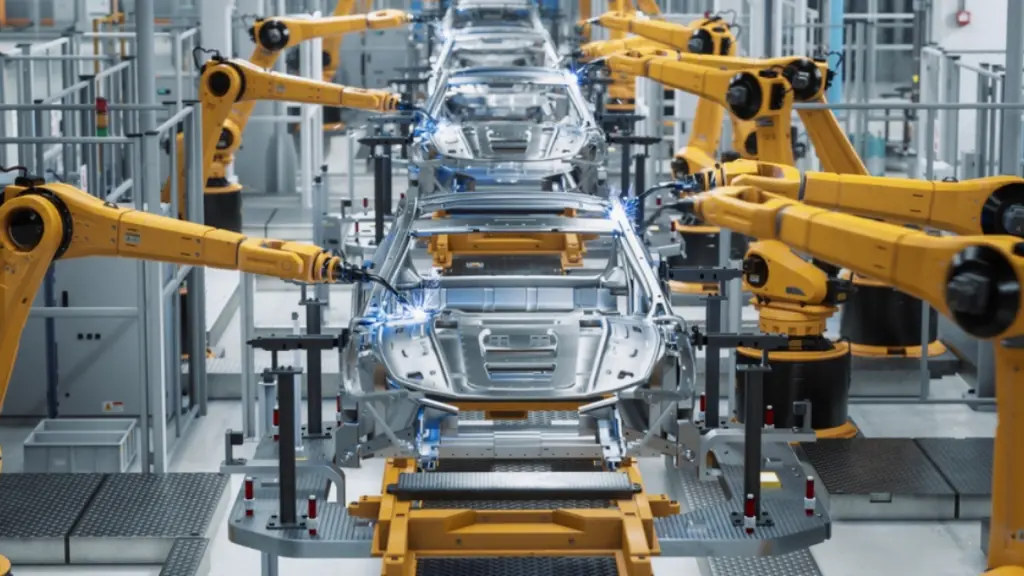Germany’s influence on global industries is undeniable, particularly when it comes to automobiles and beer. These two sectors, seemingly disparate, share a common thread: deeply ingrained cultural values that have shaped their production, marketing, and global perception.
This article will explore how specific aspects of German culture have contributed to the dominance of German brands in the automotive and beer industries, focusing on characteristics such as engineering prowess, a focus on quality, and a dedication to tradition.

The German Automotive Industry: Engineering Excellence and Precision
The German automotive industry is synonymous with engineering excellence, and this reputation is no accident. It’s a direct result of several cultural factors. Here’s how:
Emphasis on Education and Skilled Labor
Germany’s education system prioritizes vocational training and apprenticeships. This system ensures a steady flow of highly skilled engineers, mechanics, and technicians. Unlike other countries that may favor theoretical knowledge, German education places a strong emphasis on practical application.
See also How Korean Culture Became a Worldwide Phenomenon K-pop and Beyond
How Korean Culture Became a Worldwide Phenomenon K-pop and BeyondThis means that from a young age, individuals are trained to understand the intricate workings of machinery. This dedication to skilled labor is a crucial component in maintaining the high standards of German engineering. Precision engineering isn’t just about machines; it’s about the people who operate, design, and maintain them.
The Pursuit of Qualität: Quality Above All
The German word “Qualität” isn’t just about meeting minimum standards; it’s about exceeding expectations. This commitment to quality is deeply ingrained in the German psyche. It’s a relentless pursuit of perfection, where attention to detail is paramount. In the automotive industry, this translates to vehicles that are robust, reliable, and meticulously engineered.
From the selection of raw materials to the final assembly, every step is scrutinized to ensure the highest standards are met. This commitment to quality control is why German cars are often associated with luxury, performance, and longevity. It goes beyond mere functional performance; it’s about creating an experience that resonates with the consumer.
Innovation Driven by a Culture of Progress

While tradition is important in Germany, so is innovation. German companies have a long history of pioneering advancements in automotive technology. From the invention of the internal combustion engine to the development of advanced safety features, German engineers are constantly pushing the boundaries of what’s possible. This culture of innovation is not about change for the sake of change; it’s about a commitment to continuous improvement.
See also How Russian Culture Inspires Global Ballet Literature and Art
How Russian Culture Inspires Global Ballet Literature and Art
Companies like BMW, Mercedes-Benz, and Audi invest heavily in research and development, constantly seeking new ways to enhance performance, efficiency, and safety. This forward-thinking approach is essential to maintaining a competitive edge in the global automotive market. Technological innovation is a core tenet of the German automotive industry.
The Influence of the “Ingenieur” Mindset
The “Ingenieur” (engineer) is a highly respected figure in German society. The engineering profession is associated with intelligence, precision, and problem-solving abilities. This cultural respect for the engineering profession fosters a climate where technical expertise is valued and encouraged. This ethos permeates the entire industry, influencing everything from design to marketing.
The “Ingenieur” mindset emphasizes practicality, functionality, and efficiency, which are often reflected in the design and performance of German cars. This culture celebrates technical expertise as a key component of economic success and societal well-being. This is why you’ll find a high level of sophistication in German auto engineering.
The German Beer Industry: Tradition, Purity, and Community
The German beer industry is equally shaped by its culture, where traditions and quality are paramount. Let’s explore the cultural aspects that have led to its global recognition:

The Reinheitsgebot: Purity Law
Perhaps the most famous aspect of German beer culture is the Reinheitsgebot, the German Beer Purity Law. Enacted in 1516, it dictates that beer can only be made using water, barley, and hops (yeast was later added when its role in fermentation was understood). This law is not just about controlling ingredients; it’s about upholding a standard of quality and tradition.
For centuries, this law has shaped the flavor profile and character of German beer. The strict adherence to these three core ingredients has led to a culture of brewing that values simplicity, purity, and craftsmanship. It’s a testament to the German commitment to quality and authenticity and provides a guarantee of the high quality standards of German beers.
Emphasis on Brewing Tradition
German breweries are deeply rooted in tradition. Many of them are family-run businesses that have been producing beer for generations, passing down brewing techniques and recipes. This emphasis on tradition has resulted in a deep understanding of the brewing process and an unwavering commitment to maintaining the distinct characteristics of each beer style.
Brewing is seen as a craft, where skill and experience are valued over automation. The slow and deliberate processes are meant to cultivate a specific taste, texture, and aroma. This emphasis on traditional brewing methods creates a link to the past that resonates with consumers.
The Importance of Gemütlichkeit: Sociability and Community
Beer in Germany is more than just a beverage; it’s an integral part of social life. The concept of Gemütlichkeit, which loosely translates to coziness, warmth, and sociability, is central to German culture. Beer gardens, pubs, and beer festivals are places where people come together to relax, socialize, and enjoy each other’s company.
This social dimension of beer consumption is deeply intertwined with German culture. It’s about fostering a sense of community and belonging. It’s not just about drinking beer; it’s about sharing experiences and connecting with others. This cultural association with social interaction is a unique selling point for German beer. This feeling of community gathering is key.

Regional Variations and Pride
Germany has a diverse range of beer styles, each with its own regional identity. From the light, crisp pilsners of Bavaria to the dark, malty bocks of northern Germany, regional variations are a source of pride and distinction. This regional diversity is another aspect of the rich beer culture in Germany.
It demonstrates the adaptability of the brewing tradition and allows for a wide array of flavors and experiences. This local pride contributes to the diversity and richness of the German beer landscape. Each region has its own brewing style and preferences.
The Interplay of Culture and Global Impact
The cultural values driving both industries share common threads. A dedication to craftsmanship, a meticulous attention to detail, and a commitment to quality underpin the success of both sectors on the global stage.
These values are not just marketing slogans; they are deeply embedded in the German cultural ethos. The emphasis on tradition, innovation, and social connection has allowed these industries to not only create high-quality products, but also a brand identity that resonates with global consumers.
These values result in products that are highly sought after worldwide, making a significant impact on the global market. The combination of engineering prowess and brewing tradition has established German brands as global leaders, demonstrating the strength of a culturally-driven product.
Global Perception and Brand Identity

German brands benefit from a strong reputation built on reliability, engineering excellence, and tradition. This perception is carefully cultivated and heavily invested in by these companies. This reputation is not easily replicated and provides a significant competitive advantage in the global marketplace.
Consumers associate German products with quality and reliability, making them a preferred choice for many. The consistent delivery of high-quality products has built trust and brand loyalty over decades. This trust is a major factor in the global appeal of German cars and beer, setting a high bar for other competitors.
A Template for Other Industries
The German model offers valuable lessons for other industries seeking to establish themselves on the global stage. By prioritizing quality, innovation, and a customer-centric approach, other industries can emulate the German model to achieve similar success.
Understanding how deeply embedded cultural values impact industry success is crucial in a global market. The success of the German automotive and beer sectors demonstrate how cultural values translate to global commercial dominance.
It’s a model that highlights the importance of cultural heritage and how its influence can be harnessed for global impact. By observing the example of these German industries, other sectors can learn valuable lessons about cultivating their own success based on a strong cultural foundation.

The success of the German automotive and beer industries is a testament to the power of culture. Values such as engineering excellence, a relentless pursuit of quality, a dedication to tradition, and a focus on community have propelled German brands to global prominence.
These are not just coincidences but rather the direct result of deeply ingrained cultural values that have been fostered over generations. By understanding the impact of these cultural aspects, we can appreciate how they have shaped these industries and contributed to their enduring success on the global stage. This provides a valuable example for how cultural values and traditions can drive a global business.“`




